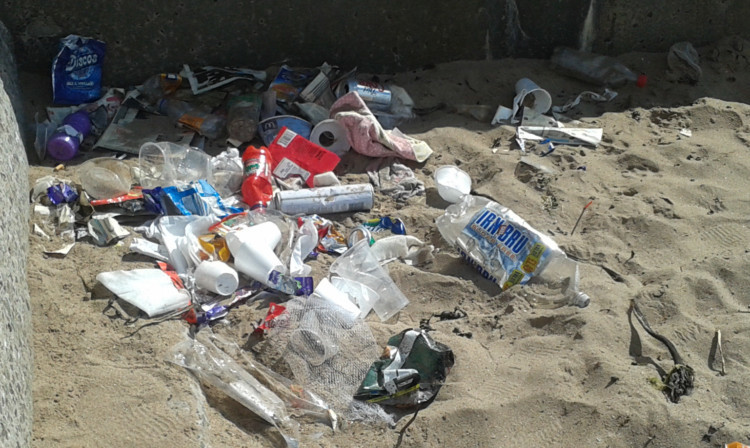Angus Council has warned that a rise in litter fines could also lead to an increase in non-payment rates.
Fixed Penalty Notices (FPNs) for littering will rise from £50 to £80 while flytipping offences will quadruple to £200 from April.
To emphasise the importance of not littering, and communicate the £80 penalty, the Scottish Government will run a national campaign from May.
It follows the National Litter Strategy Consultation in which two thirds of respondents indicated they were in favour of increasing the penalties.
Angus Council has welcomed the strategy and believes it will provide much needed support to local authorities and landowners in dealing with the problem.
Police officers and designated council officers have the power to issue FPNs.
However, the local authority believes the rise in the level of fine could create additional problems in terms of payment.
A spokesman told the consultation: “The issue with the current FPN is not necessarily with the level of the fine, but with the level of payment there is a danger that if the fine is increased, the non-payment rate will also increase.
“It is agreed that there should be a higher penalty for flytipping, which is a premeditated act that causes in many cases greater environmental harm than litter does.
“Littering tends to be a careless, spur of the moment action, as opposed to the premeditated act that is flytipping.
“These two anti-social acts therefore require different responses, and flytipping should be treated as a much more serious misdemeanour.”
The council said that influencing behaviour towards disposing of waste responsibly is crucial in tackling Scotland’s litter and flytipping problems.
It added: “Making it easier to dispose of waste is also important, however in our experience in Angus where litter bins and disposal sites are numerous, people still drop litter and flytip their waste.
“A national anti-litter campaign should help to create a social norm where littering becomes an unacceptable practice,” it said.
Much work is already undertaken at primary schools across Angus in relation to anti-littering messages.
Evidence shows that children at this stage do not cause a problem whereas secondary school pupils are much more likely to drop litter and can be responsible for creating litter hot-spots.
The council has called for a focus on anti-littering at secondary school stage.
A spokesman added: “It is important that this message is not restricted to dealing with litter within school grounds only, as per the current Eco-schools model, but takes account of the wider areas of the community that young people use.”
